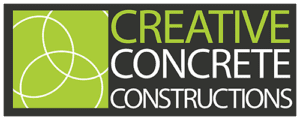Benefits of stamped concrete driveways
Benefits of Stamped Concrete Driveways
If you’re looking to upgrade your home’s entrance, stamped concrete offers the perfect blend of beauty, function, and durability. With the ability to mimic stone, brick, slate or even timber, the benefits of stamped concrete driveways go far beyond appearance. It’s an affordable, low-maintenance solution that doesn’t compromise on visual impact or strength.
Whether you’re building a new driveway or resurfacing an old one, stamped concrete could be the ideal choice.
What Is a Stamped Concrete Driveway?
Stamped concrete involves imprinting a pattern or texture onto freshly poured concrete. This process creates a decorative surface that resembles high-end materials—without the hefty price tag. The benefits of stamped concrete driveways lie in their ability to transform plain concrete into a bespoke feature of your home.
Popular Patterns and Styles
-
Cobblestone
-
Ashlar slate
-
Brick
-
Flagstone
-
Timber plank effect
You can also choose from a variety of colours, tints, and borders to complement your home’s exterior.
Top Benefits of Stamped Concrete Driveways
Let’s explore the most compelling benefits of stamped concrete driveways and why they’re becoming so popular across Australia.
1. High-End Look Without the High-End Cost
Stamped concrete gives you the aesthetic of natural stone or pavers at a fraction of the price.
-
Adds sophistication and kerb appeal
-
Customisable patterns and colours
-
Eliminates the need for expensive materials
For example, many homeowners in Brisbane’s suburban areas opt for stamped concrete to mimic sandstone, creating a luxurious look without blowing the budget.
2. Long-Lasting and Durable
A major advantage in the benefits of stamped concrete driveways is the surface’s strength and resilience.
-
Withstands heavy vehicles and high traffic
-
UV-stable and weather-resistant when sealed
-
Less prone to sinking or shifting compared to pavers
Properly installed and sealed, a stamped concrete driveway can last 20–30 years with minimal issues.
3. Low Maintenance
Unlike traditional brick or paver driveways, stamped concrete doesn’t require weeding or resetting.
-
No gaps for weeds or ants
-
Easy to clean with water and mild detergent
-
Resealing every 2–3 years maintains protection and sheen
This makes stamped concrete a smart choice for busy households that want both beauty and convenience.
4. Slip Resistance Options
With the addition of non-slip additives in the sealer, stamped concrete driveways can be made safe for both foot and vehicle traffic—even when wet.
-
Suitable for sloped driveways
-
Textured patterns naturally improve grip
-
Ideal for families with children or elderly members
5. Versatility in Design
Another of the key benefits of stamped concrete driveways is the sheer design flexibility.
-
Match or contrast your driveway with the exterior palette
-
Incorporate borders or patterns for extra visual interest
-
Customise to blend with landscaping and pathways
This makes stamped concrete not only practical but also an artistic feature of your outdoor space.
Common Concerns and Solutions
While the benefits of stamped concrete driveways are significant, it’s important to understand potential challenges.
-
Fading or surface wear: Prevent this with regular sealing
-
Cracking over time: Control joints and proper installation reduce risk
-
Professional installation needed: DIY is not recommended for best results
Choosing a qualified contractor ensures these concerns are addressed upfront.
Final Thoughts
The benefits of stamped concrete driveways make them a standout option for homeowners seeking beauty, value, and long-term durability. With proper installation and care, they deliver high-end aesthetics without the ongoing hassle of traditional materials.
Thinking of upgrading your driveway? Speak to a local concreting expert about stamped concrete styles and finishes that suit your home and lifestyle. With the right design, your driveway can become a signature feature that adds charm and value for decades to come.
